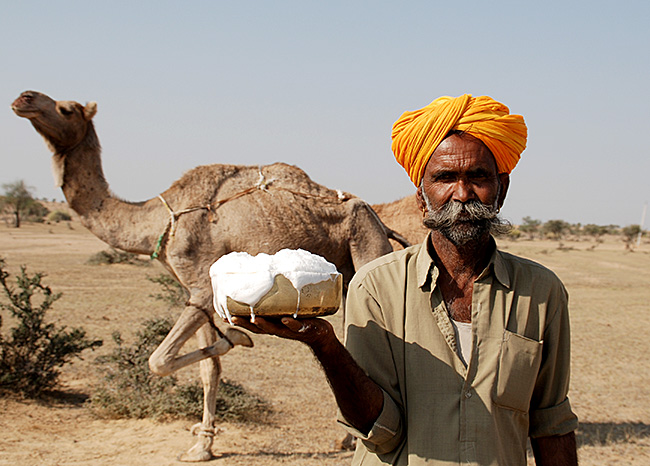Raika Camel Milk in the Slow Food Ark of Taste
We have great news to announce at the inauguration of the Kumbhalgarh Camel Dairy: Raika Camel Milk has been accepted in the Slow Food Ark of Taste! This is an important step for saving the Raika Camels and the livelihood of the Raika community.

Read more:
https://www.fondazioneslowfood.com/
The Raika camel milk project is supported by Bettina Bock, Hand in Hand-Fonds, Misereor and the Start-Up Oasis.
UN passed Peasant’s Rights declaration
On 17 th December 2018, the 73 Session of the United Nations General Assembly (UNGA 73) in New York adopted the UN Declaration on the Rights
of Peasants and Other People Working in Rural Areas. Now the declaration is an international legal instrument for the implementation in all countries all over the world since “Peasants Rights are Part of Human Rights”!
The long term process, initiated by the international peasant movement La Via Campesina, supported by numerous social movements and allied organizations, such as FIAN, CETIM and
especially Farmers Association of Schwäbisch Hall, Germany, who conducted the International Peasants Rights Congress in March 2017, has been a great source of inspiration and has strengthened the peasant communities in all regions of the globe.
Press Release: UN Adoption of Declaration for Peasants Rights (PDF)
Biocultural Community Protocols (BCPs)

(Biocultural) Community Protocols are documents produced by local communities about the biological diversity they create and conserve. They are an important means for local people to claim their rights under national and international law, especially though the Nagoya Protocol to the Convention on Biological Diversity. They are intended to ensure that recognition and benefits flow to indigenous and local communities for their role in conserving in the conservation and sustainable use of genetic resources.
Community protocols also have many other uses: telling the outside world about the community’s role in conserving biological diversity, documenting traditional knowledge and raising awareness among community members about their unique livestock and livelihood system.
BCPs for pastoralists were pioneered in India in 2009 by the Raika community, with support from our partner organizations Lokhit Pashu-Palak Sansthan (www.lpps.org) and Natural Justice (link). LPP advocates for wider use of the approach and has aided various members of the LIFE Network to implement BCPs, such as among the Samburu of Kenya, camel breeders of Rajasthan, Brela camel breeders in Pakistan, and many others.
- Go to the previous page
- 1
- …
- 13
- 14
- 15
- 16
- 17
- 18
- 19
- …
- 87
- Go to the next page



